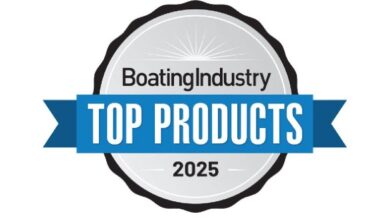Consider consignment
Running a pre-owned boat business usually requires a lot of cash.
But it doesn’t have to.
Accepting boats on consignment can be an alternative — and profitable — way to have a presence in the pre-owned market.
Just ask Brian Lesko. The president of Islamorada Boat Center (Ranked 85 in 2006) got his start buying, fixing up and selling pre-owned boats. But he owned a desirable piece of property along the highway, and boat owners began clamoring for him to sell their vessels for them. Now, 80 percent of his retail sales are new boats, and the remaining 20 percent is split between consignment and trade-ins. The consignment boats are more profitable, he says.
“I’m basically taking a 10-percent commission on the sale of that boat and don’t have to tie any of my money up in it or floorplan,” he explains. “It brings customers in and a lot of times, you can convert those customers looking for a used boat into a new boat.”
Islamorada conducts a 50- to 80-point inspection on each consignment boat, using the technician’s evaluation to make recommendations to the seller on work he might have done to get more money out of the boat. The dealership also makes that inspection checklist available to potential buyers so they don’t get any surprises if they decide to purchase it. If a consignment boat is in good condition, Islamorada will also offer a 30-day in-house warranty.
Lesko points out that since he is the only new boat dealer within a 20-mile radius that accepts boats on consignment, he often is able to convert the seller into a new boat buyer too.
“Because I’ve been willing to go the extra mile for them, I think there is a loyalty there from the customers,” he says. “Why other boat dealerships don’t do that, I don’t know. It just seems like, especially if it was your own customer, someone you had originally sold that boat to, I would think you would have some sort of loyalty to try to help them move that boat, especially if you’re not coming out of pocket.”
Islamorada is careful to choose the right consignment boats and boat sellers. Boat owners whose boat is no longer under warranty and starting to fall apart may want to make their headache yours. Those who are upside down may want to ask more for their vessel than it’s worth. Neither type makes for good consignment customers, says Lesko.
His customers are rarely among those upside down in a boat, however. Islamorada treats each new customer as if the dealership is beginning a long-term relationship with them.
“It’s better to make a little bit each time you deal with him than to make it all upfront,” he says. “Look down the road a little bit, know that this guy might be a customer coming back, and you’re going to have to look him in the face and explain to him why his boat is only worth half of what he paid for it and it’s because your pockets are nice and fat. You don’t want to be caught in that scenario.”




